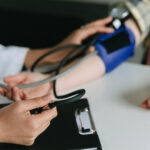Filipinos are exposed to a lot of dangers, like natural disasters, traffic accidents, and incidents of violence. Despite the dramatic nature of such events and their sometimes high death tolls, the actual leading cause of mortality among Filipinos is what are called lifestyle diseases, also known as non-communicable diseases (NCDs).
“These are called lifestyle diseases because (they're) after your lifestyle,” said Health Secretary Ted Herbosa. In his interview with ANC’s Headstart, the head of the Department of Health (DOH) added that bad eating habits, a lack of exercise, and obesity eventually add up and get you by your 50s and 60s. “So that’s how Filipinos are dying,” Herbosa said.
Leading Lifestyle Diseases Among Filipinos
- Coronary and Cerebrovascular Diseases: These refer to heart diseases where blood supply is reduced, and cerebrovascular diseases that affect the brain, such as stroke. They are the first and third highest causes of death in the Philippines from January to December 2024.
- Cancer: Covers malignant cell growths that become fatal over time and become increasingly difficult to treat the longer they remain undetected. Some types are more common in one sex or another, like cervical cancer in females and prostate cancer in males.
- Diabetes Mellitus: The fourth leading cause of death in the Philippines, diabetes is characterized by high blood sugar, often caused by your body’s inability to produce or respond to the hormone insulin. While genetics plays a part in diabetes, the preference of Filipinos for foods with high sugar and salt content exacerbates incidents.
- Chronic Respiratory Diseases: Pneumonia remains among the top causes of death in the Philippines, and many Filipinos know someone with asthma or sleep apnea. Certain jobs can also lead to occupational lung disease, and the poor air quality in urban areas, coupled with the prevalence of smoking and vaping, certainly adds to problems with breathing.
- Kidney Disease: Also known as renal disease, this happens when damage to your kidneys affects their ability to filter blood and remove waste or excess fluids. While not as deadly as the other four, treatment of kidney disease can be costly, especially to low-income families.
How Lifestyle Diseases Affect Daily Life
The impact of lifestyle diseases goes beyond mortality rate statistics. Among the biggest effects of NCDs are:
- Lowered productivity: Non-communicable diseases often sideline those afflicted for significant amounts of time. Unlike a fever, recovery time is long after suffering a stroke and can have permanent effects like loss of motor control or even cognitive capabilities that can affect your ability to work.
- Loss of income: Lifestyle diseases can lead to a significant loss of income, as you can spend a good amount of time in treatment or recovery. This could take more time than your leaves or social programs can cover. You can even lose your employment if the effects are severe enough.
- Reduced Quality of Life: NCDs also reduce your quality of life. Most stroke victims end up with one level or more of limited movement if they survive, and all of the common lifestyle diseases prevent them from engaging in intensive and strenuous physical exertion, even walking moderate distances.
What Causes Lifestyle Diseases and How to Prevent Them
While most incidents of lifestyle diseases can be traced to genetic predispositions, doctors often have an “aha” moment after finding out one or more relatives of yours died from NCDs - many habits do contribute to their prevalence.
- Being sedentary: A High incidence of NCDs is often attributed to a significant lack of movement. This sedentary lifestyle, either through work or play or both, leads to fat buildup and poor blood circulation.
- Habit Change: Adding even a few minutes of walk time to your daily commute, where and when possible, could see improvements to your overall health. If the building cafeteria is a floor or two up, you could take the stairs to get there rather than the elevator.
- Poor eating habits: Filipinos love to eat. Unfortunately, many of our favorite foods: kare kare, sisig, a session of samgyeopsal after work, extra or unli rice - are triggers for almost all of the lifestyle diseases. Adding to that is a low, if any, consumption of vegetables and fresh fruits. You can probably stack here the Filipino love for handcrafted coffee, which is often high in sugar.
- Habit Change: For significant changes in diet, we recommend consulting a specialist. But reducing your intake of foods rich in fat and sugar can already contribute to better health. Adding good portions of vegetables and fruits to your meals could also help in lifestyle diseases.
- Stress and fatigue: Leaving stress, fatigue, and lack of sleep unchecked can cause many lifestyle diseases. Complicating these factors are any unhealthy coping mechanisms, like stress eating, under-eating, or excessive smoking and vaping.
- Habit Change: While an unavoidable facet of modern work and schooling, you can adopt many habits to minimize stress and fatigue, like mindfulness exercises and taking your breaks, and leaves. Avoiding harmful coping mechanisms and replacing them with healthier ones is also best.
- Vices: A lot of common Filipino recreational activities - smoking and vaping, alcohol consumption, videogames - can contribute to high incidences of NCDs through ingestion of harmful chemicals, damage to key organs like the lungs and kidneys, and lack of rest and sleep. Aside from those, such activities also tend to reduce your body’s immune system.
- Habit Change: There are many reasons people get into vices, so changing habits built up around them can be difficult. But for the sake of your health, you can strive to reduce your intake of harmful substances like nicotine and alcohol. Finding healthier substitutes, especially if you use vices as a coping mechanism for stress reduction, is also a good move.
The Importance of Regular Health Checkups
In our article on preventing cervical cancer, one of the biggest defenses against the disease was early detection and immunization.
Filipinos are culturally not predisposed to regular checkups. Part of the reason is the perceived cost, as well as worries that can run the range of a lack of trust that doctors have the best interests of their patients in mind (and will therefore find ways to jack up the medical bill) or the cost.
But regular checkups can be one of the best lifestyle disease protections out there. Heart diseases and cancer are often only discovered when they are at a life-threatening stage, but it is possible to detect them early, when treatment is easier and cheaper. The same goes for kidney and lung diseases. And regular checkups can help manage diabetes to the point that maintenance medications for it are at the bare minimum.
Reliable Insurance specialists can help you pick health plans that not only allow you to get regular checkups with trusted medical professionals but also at price points that won’t raise your blood pressure. Don’t wait for symptoms to appear before taking action. With the right health coverage, you can prioritize regular checkups, access early treatment, and manage conditions before they escalate. Talk to us today—because protecting your health starts with being prepared.
Contact Information for Inquiries and Support
If you have any questions or need assistance with your insurance, feel free to reach out to us:
- : +63 2 8631 9285 to 86
- Mobile: +63 917 138 5120
- Email: info@reliable-insurance.ph
- Messenger: m.me/reliable.insurancebrokersph
Sources:
- World Health Organization (2018, May 8), Time for action to stop the deadliest diseases in the Philippines.
- ABCs of Global Health (2024, Feb. 17), Chronic Diseases in the Philippines: A Comprehensive Analysis.
- The Medical City Clark (2025), Deadly Lifestyles: How Your Personal Choices Impact Your Health.
- Statista (2025), Leading causes of death in the Philippines from January to September 2024.
- ABS CBN (2023, Dec. 19), Heart attack, diabetes, cancer among top causes of death in PH: DOH.




